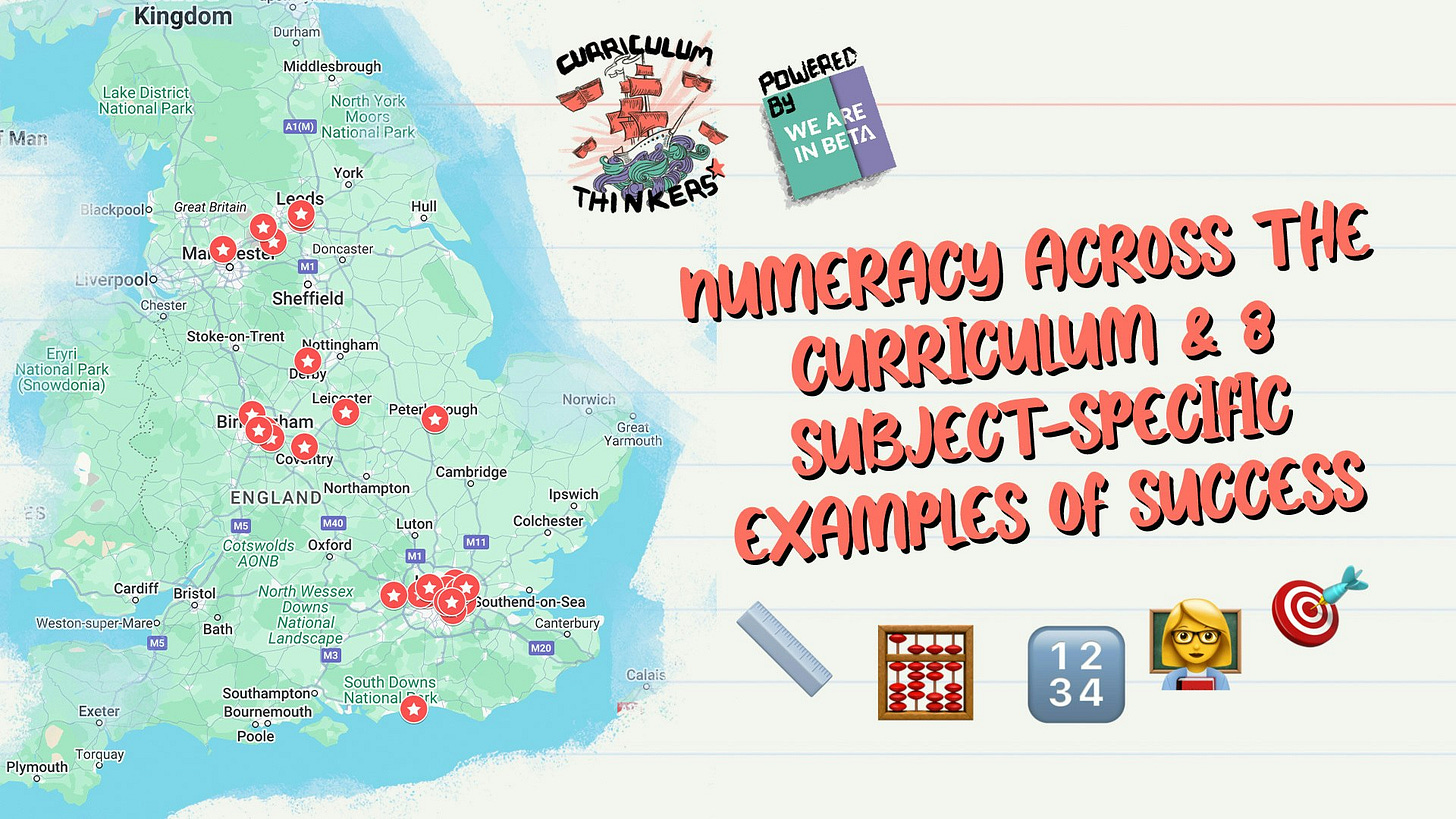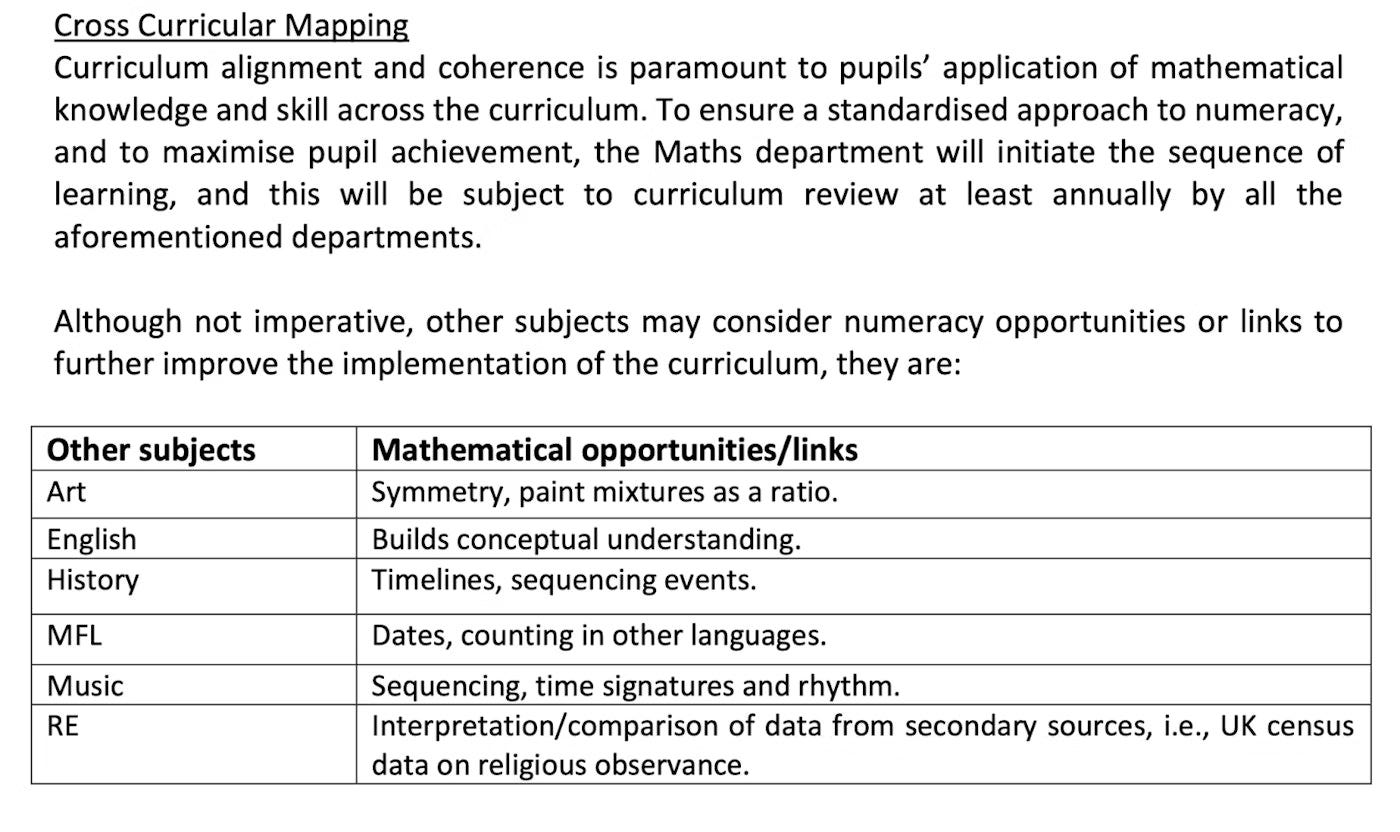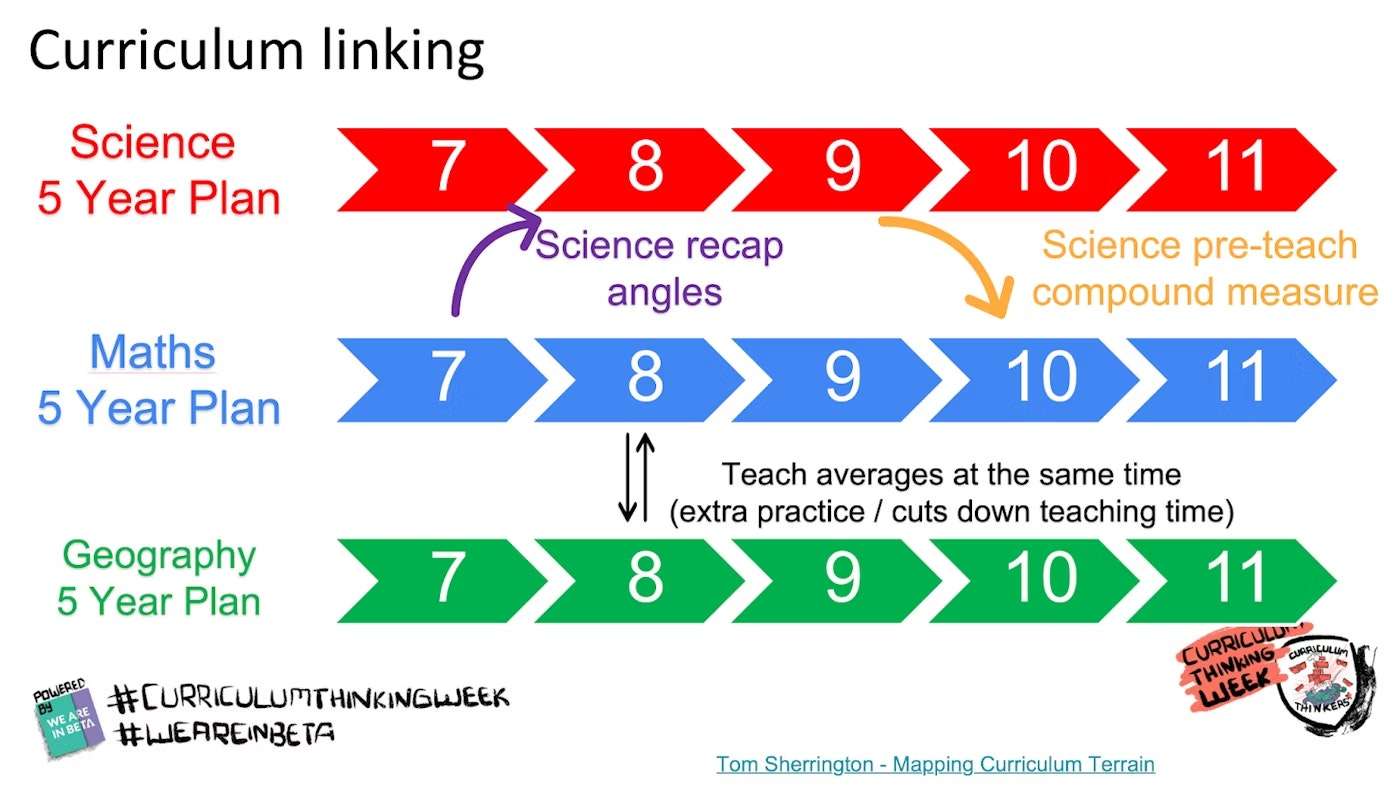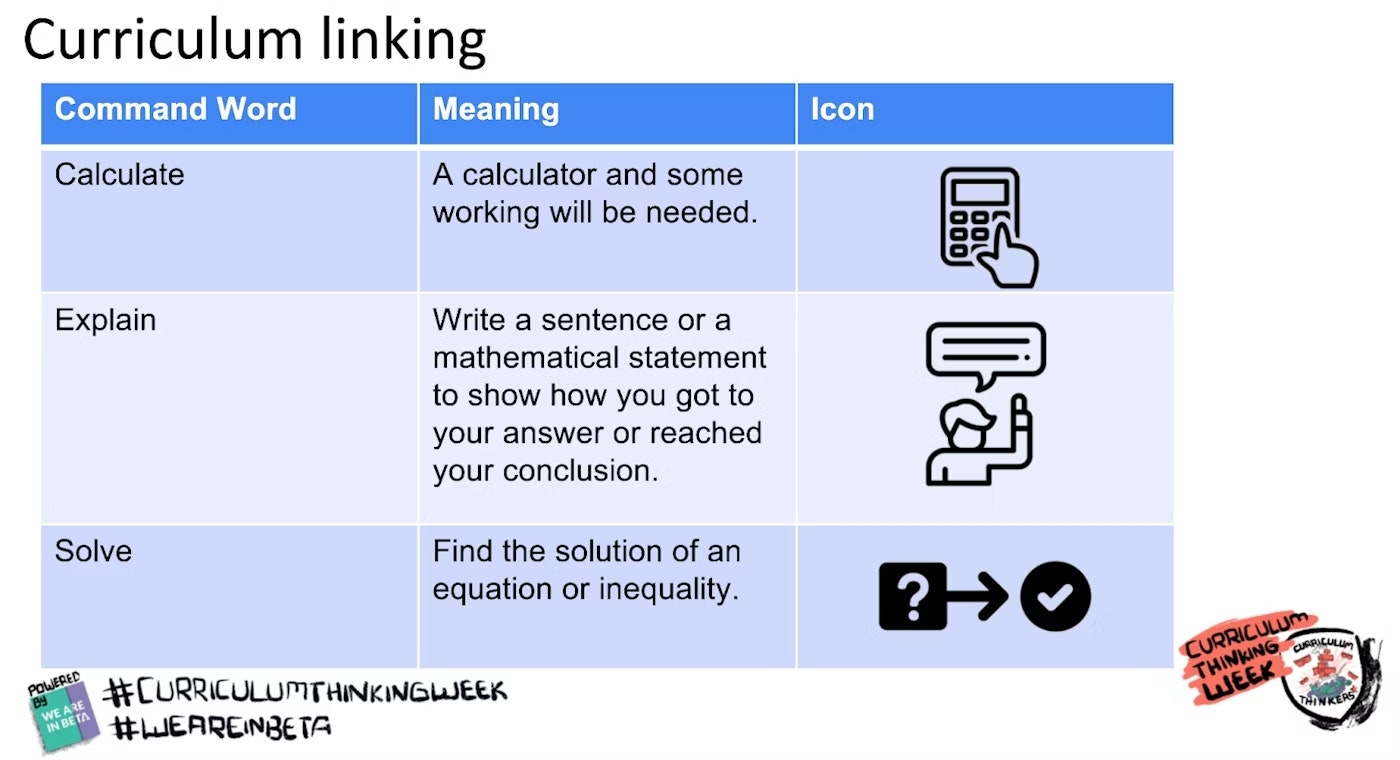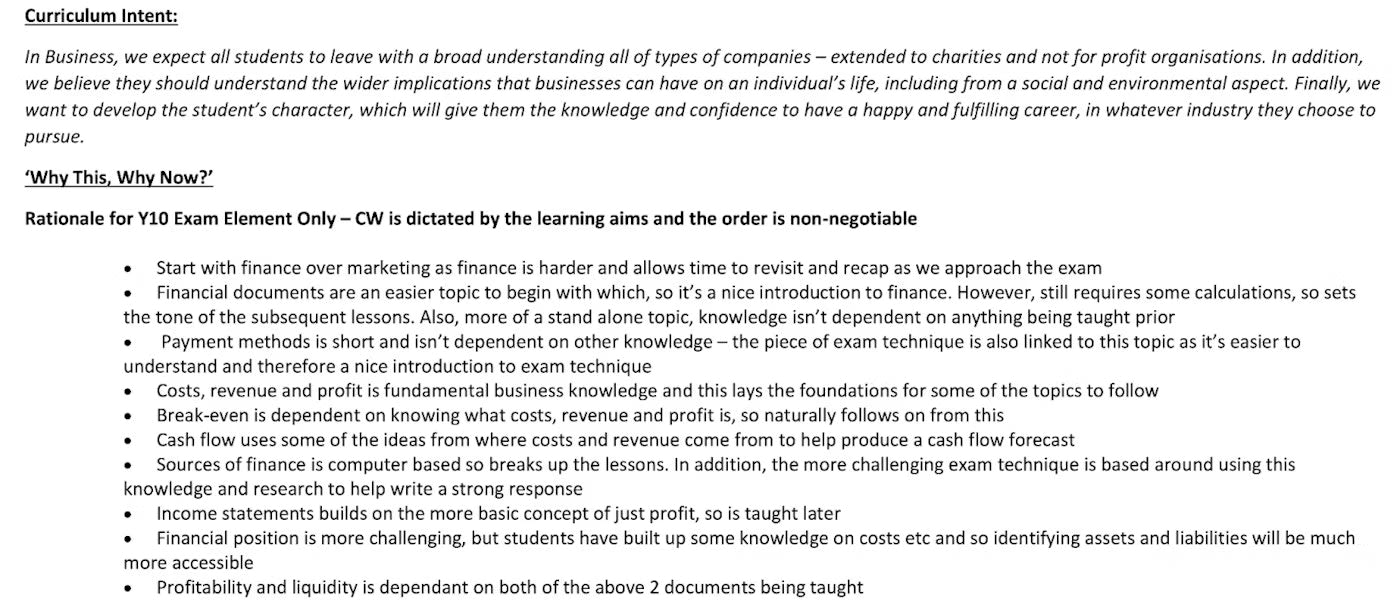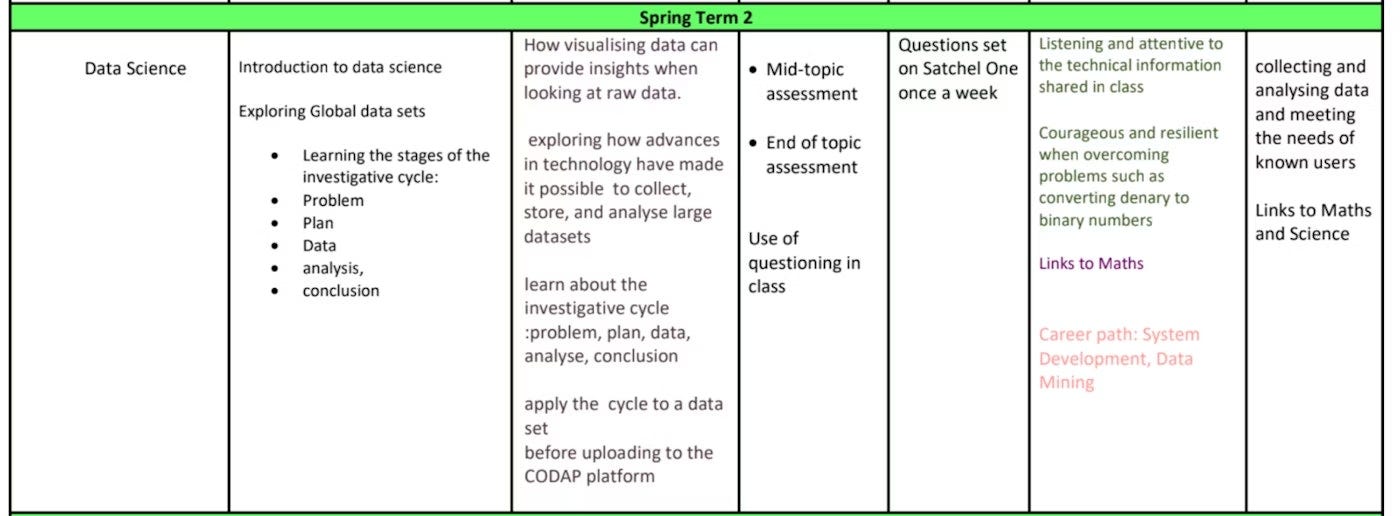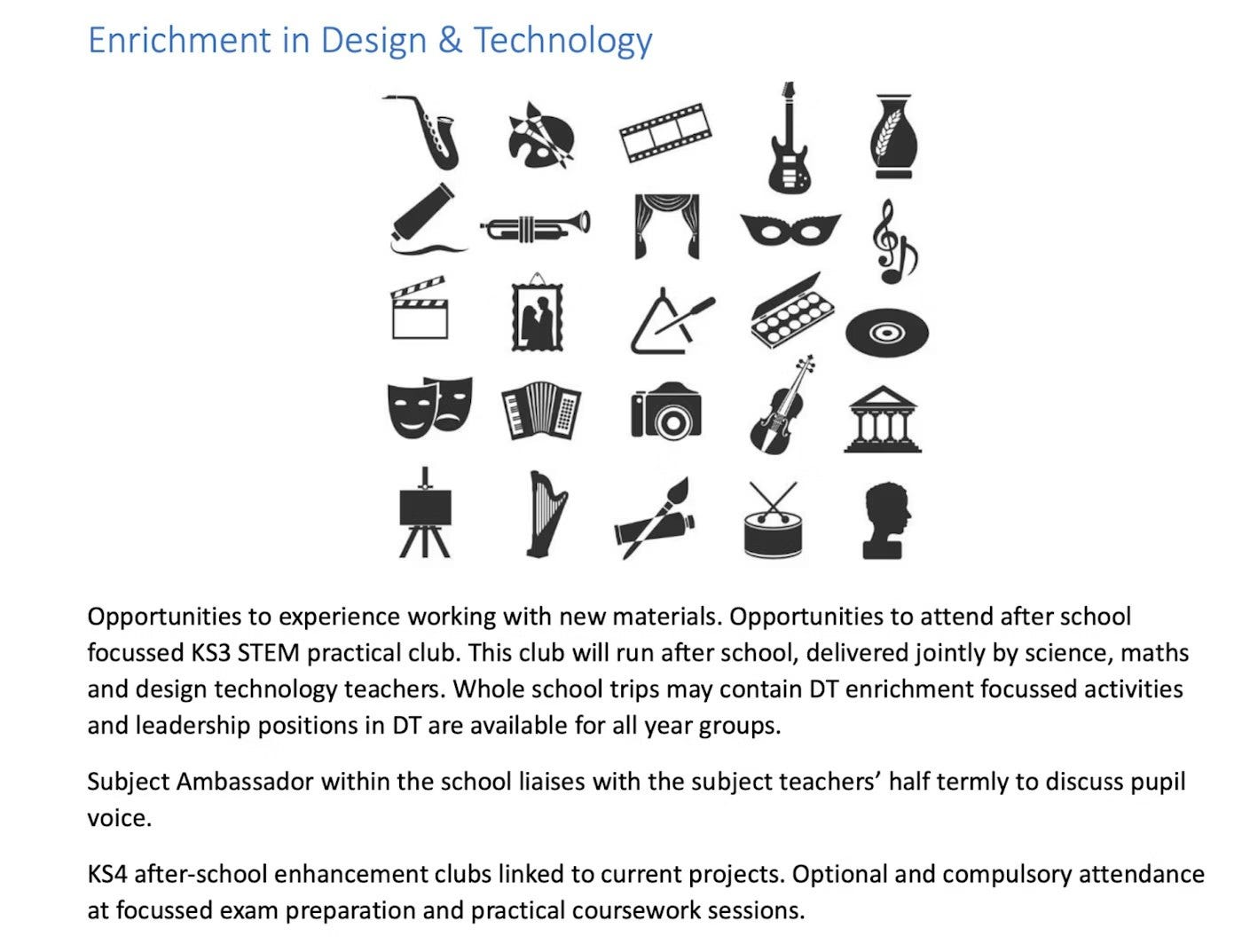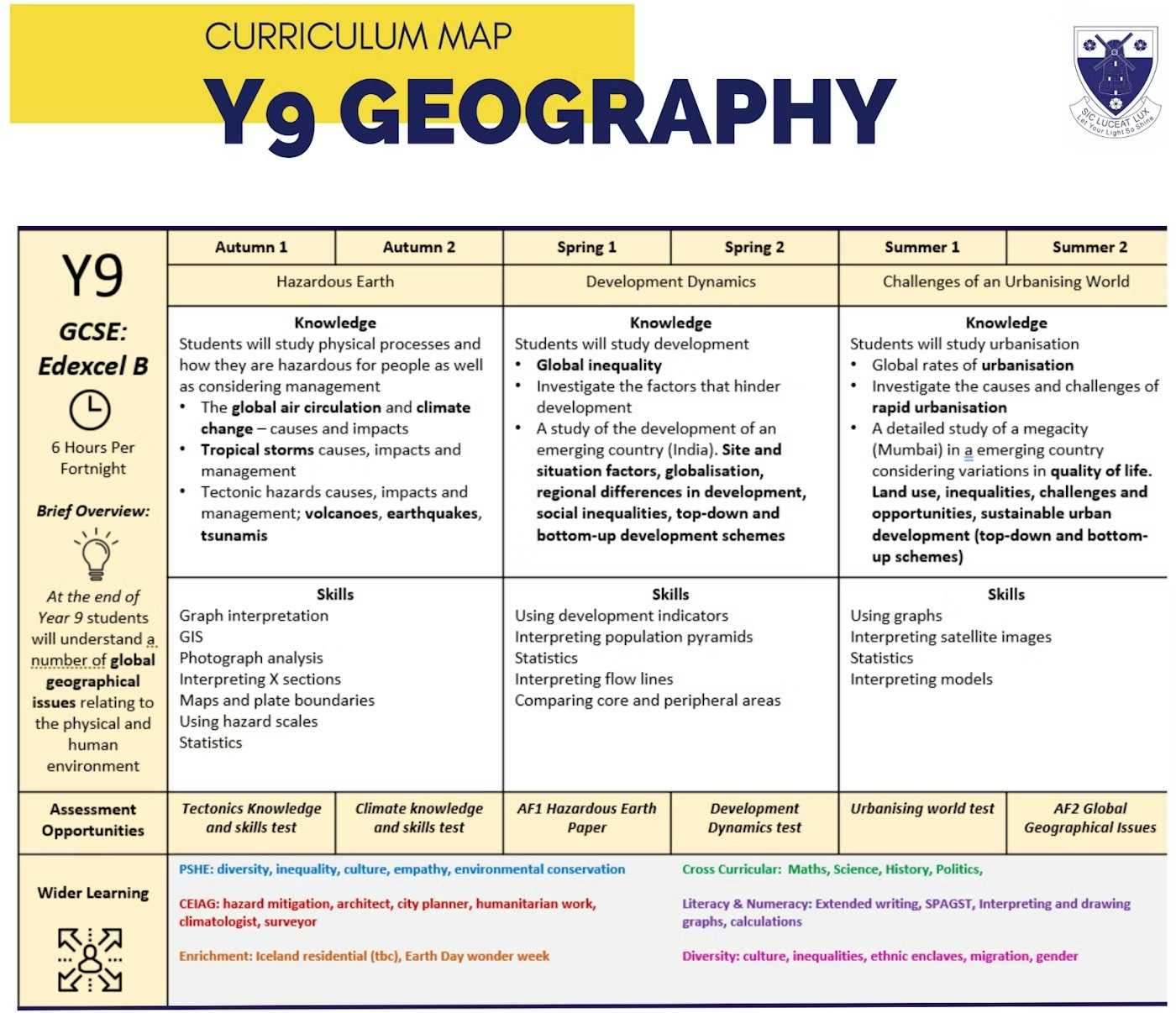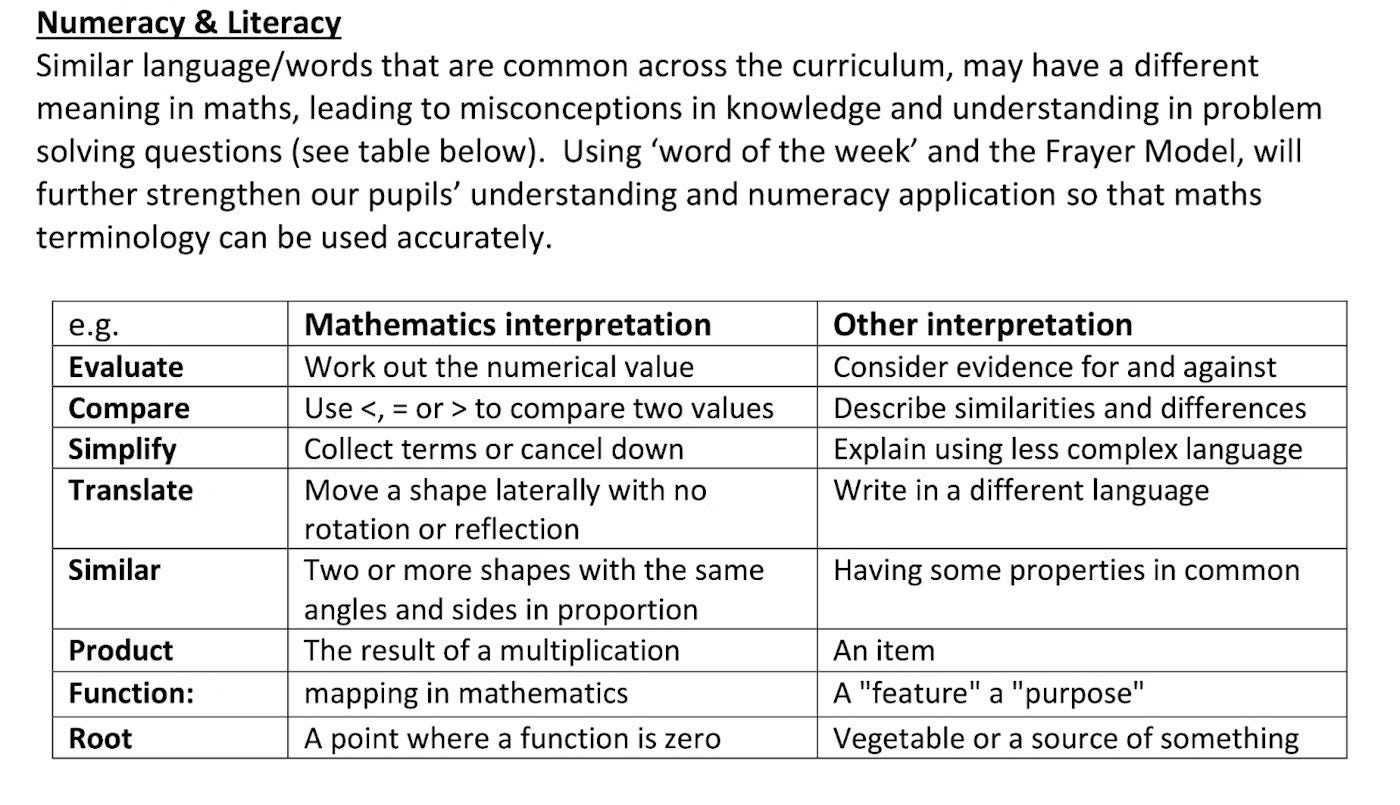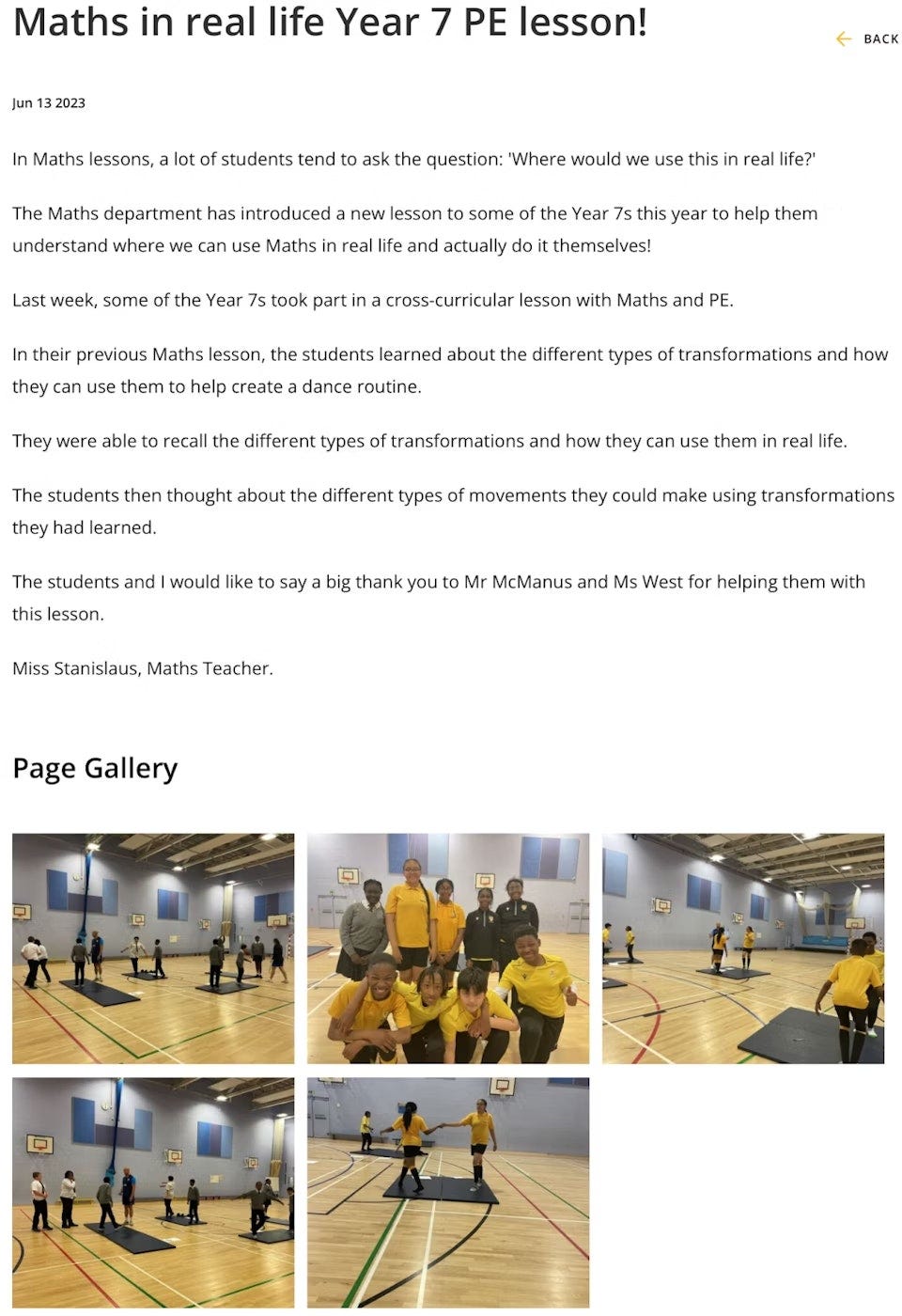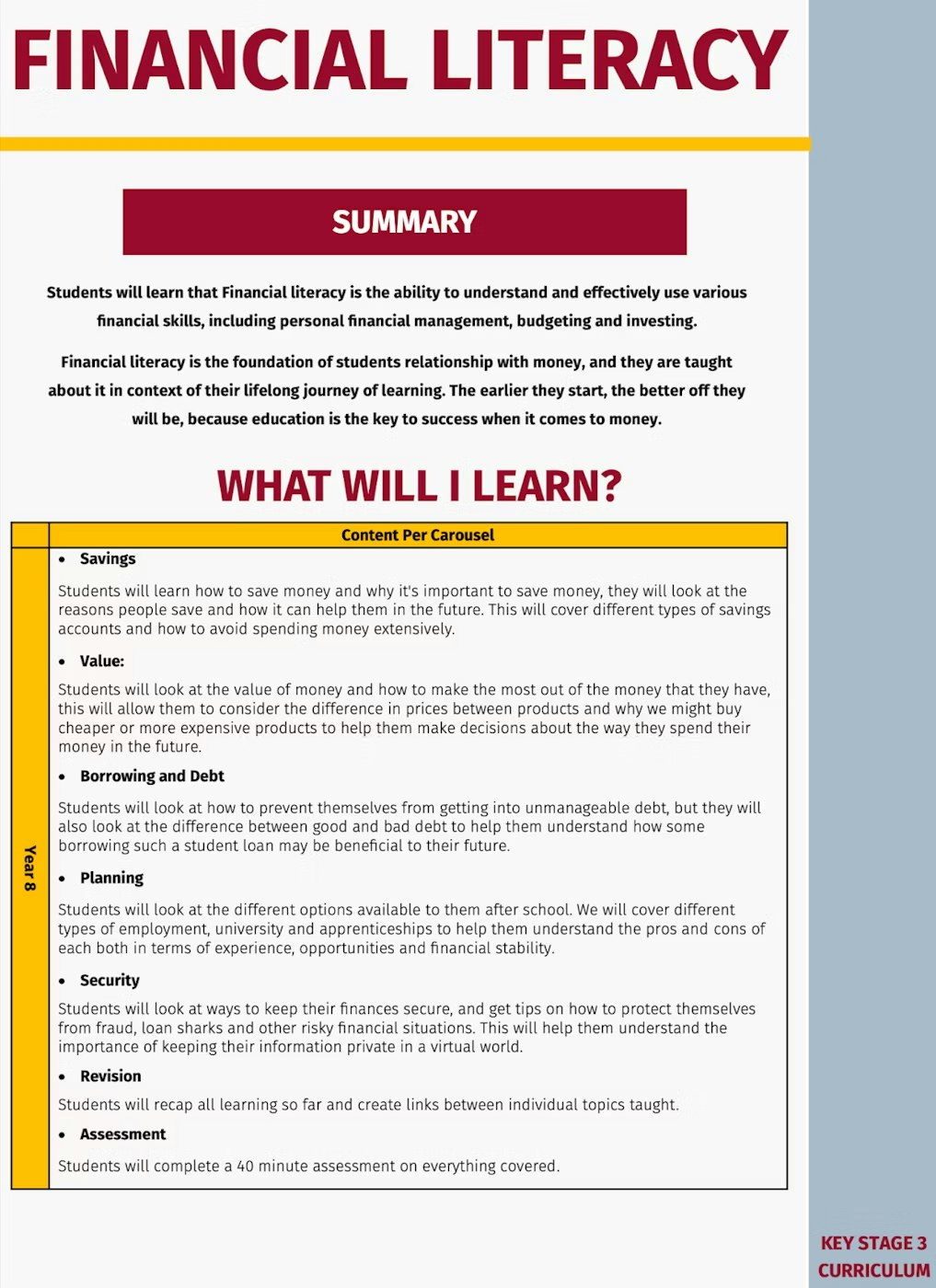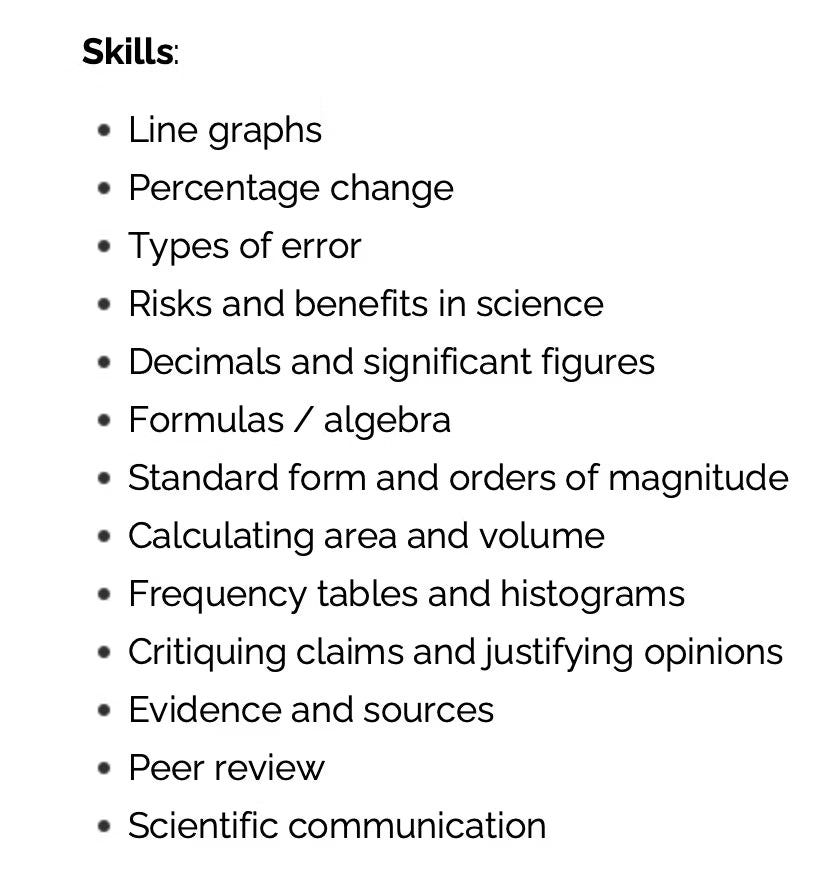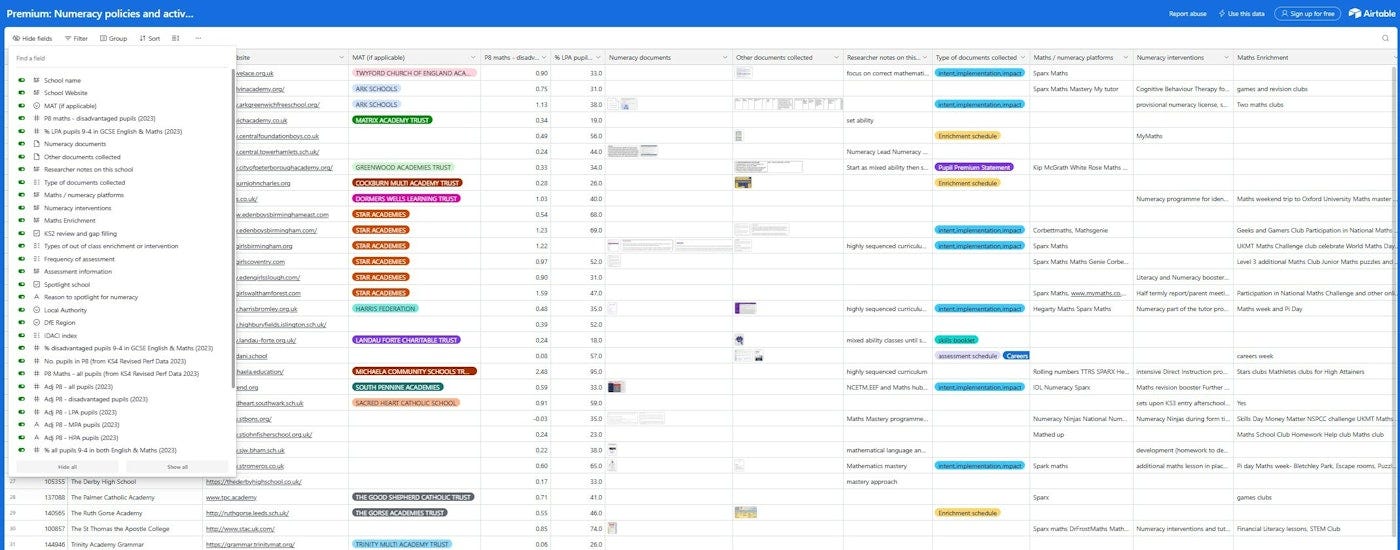This is another guest post by our wonderful Curriculum Thinkers Community member, Louise Ferrier. If you find it useful, she’d love to hear your thoughts in the comments here. We hope the exams are going well.
Last week we established that whole-school numeracy needs a bit of a makeover. That is not to say that celebrating numeracy means pushing benign number-related opportunities for the sake of it in the name of positivity. We’re looking to create a culture where the metacognitive resilience of the mathematical mind is celebrated and modelled within context.
And what a context the modern-world is!
Mathematical thinking can be applied at some point to most subjects (even English loves a Venn diagram!) and shows students that numeracy is not confined to the Maths classroom. When we connect numeracy to practical, relatable contexts such as budgeting in Business, timing in PE, or recipe scaling in DT, we help students see the relevance and value of mathematical thinking.
Not only are we making numeracy a real-world, everyday life skill, we’re helping to reduce the astonishing number of UK adults plagued by Maths-anxiety.
A joined-up approach to numeracy deepens understanding and builds student confidence leading us neatly to the cross-curricular numeracy strategy.
Before we get into how Louise’s findings can help you improve numeracy in your subject, a quick announcement…
📆 Curriculum Thinking Week - draft programme revealed
The window for subject specialists to share outlines of their Curriculum Thinking Week 25 sessions and upload recordings and resources is now open!
So far our incredibly generous members have submitted 70 sessions across 15 subjects.
Here’s a reminder of the dates and links you need if you are speaking/supporting colleagues’ submissions:
By Wed 11th June- tell us you'd like to speakin this short formBy Monday 23th June - share your session outline in this form
By Friday 27th June - record your session, and when it is ready, upload video, slides and docs
w/c 7th July – conference goes live! Jump in to meet fellow speakers, discuss sessions and learn from a wealth of ideas and resources on offer.
🎫 Register for Curriculum Thinking Week 2025 before 29th June
Curriculum Thinking Week is free to attend. But only between 7th July and 11th July.
After that, it is only available to paying members of the Curriculum Thinkers Community
Register before 29th June to make sure you don’t miss out.
Right back to helping your students’ numeracy on your subject…
Cross-Curricular Numeracy
By using consistent language, methods, and visual representations across departments, we can support fluency and reduce cognitive overload, while also breaking down the idea that maths is something to fear.
In St John Wall Catholic School’s numeracy policy, emphasis is given to all subjects exploring opportunities within their curricula for numeracy. The document (an excerpt of which you can see below) recognises the integral role of the maths department’s expertise in creating and being the bearers of the school’s standardised approach to the teaching of numeracy.
Strategic mapping of numeracy concepts can reduce cognitive load and put into practice the oft-elusive transference of skills and knowledge from one subject to another. Rob King, Numeracy Coordinator at St Mark’s Academy shared how they have mapped natural opportunities for subjects to embed, practice and pre teach concepts looking for opportunities to put the theory into practice as visually depicted below:
Additionally, they use dual coding to highlight in lessons where maths-skills are now needed, replicable across the whole school curriculum.
Members can learn more from Rob about the St Mark’s Academy approaches here.
The building blocks of a successful strategy begins with a shared understanding among staff of what numeracy looks like in different subjects, supported by cross-curricular mapping and consistent application of mathematical language.
Mathematical concepts need to be carefully sequenced and where possible, subjects can use a joined up approach where skills cross into different disciplines.
So what does this look like in practice? From intent statements to sequencing, enrichment activities to knowledge mapping, read on to find out how departments in the We Are In Beta community are tackling numeracy in their subjects.
Get unlimited access to all curriculum research, resources and recordings
Resources and recordings are only available to paying members of the Curriculum Thinkers Community who can:
learn from hundreds of recordings covering every aspect of curriculum development across 20 subjects
download 2000+ resources - both whole school and subject specific
access 700+ academic related policies, plus analysis of them, from successful schools - T&L, assessment, homework and more.
promote their jobs in our newsletters that go out 23k school leaders and teachers.
Not a member yet?
Get a trial here
Already a member but can't access, DM Fiona Flint and ask her for your membership activation link.
Subject examples of numeracy development
Business
Offering real world applications of numeracy, such as profit and loss calculations, interest rates, budgeting, and financial forecasting, business helps students understand percentages, graphs, and data in a meaningful context.
The Northampton Academy’s business department has given careful consideration to the sequencing of the financial concepts to allow retrieval and development over time:
Explore this and more business curriculum documentation from successful departments here.
Computing
Computing strengthens numeracy. It promotes structured thinking, pattern recognition, and problem solving, all skills that support mathematical fluency and precision, especially in sequencing and data handling.
The computing department of The Ursuline Academy, Ilford, makes connections to cross curricular skills and knowledge covered in each of their units on their curriculum documentation. The examples below are taken from the Yr9 curriculum overview:
Design Technology
The enrichment of DT at Belle Vue Girls' Academy includes a STEM club bringing together the maths, science and DT departments demonstrating the crossover between these subjects and emphasising numeracy in the real world.
Explore this and more DT curriculum documentation from successful departments here.
Geography
There are multiple ways a department can publish their commitment to making cross-curricular skills explicit. In the case of St Richards Catholic College the geography department uses their intent statement to express their cross curricular commitment:
Whereas the geography department of Tolworth Girls’ School and Sixth Form specifies those connections within the curriculum map of every year group, as shown by the Yr 9 example below:
Explore the curriculum documentation of successful geography departments here.
Maths
While the maths department provides the foundation for numeracy, its role extends beyond teaching core skills to be the flagship of numerical consistency across the school.
This is not always as simple as it looks as the numeracy policy of the Saint John Wall Catholic School recognises. It specifies a potential conflict of language terminology in maths and other subjects. The document recognises that maths’ use of some common terminology has a more specific meaning which must be understood within its context in order for students to be accurate. The Frayer model is cited as a way of making contextual meaning explicit in maths:
Explore the directory of numeracy policies and activities here.
PE
This example from the Bonus Pastor Catholic College celebrates the joy of cross curricular success between their PE and maths departments. This news article gives prominence at a whole community level whilst emphasising the real-world application of maths in PE.
Explore successful PE departments curriculum documents here.
PSHE
St Thomas The Apostle offers lessons in both careers and financial literacy as part of the KS3 curriculum. You can see what the lessons cover in the extract below. This real-world connection to every day numeracy also involves revision and assessment, giving it gravitas within the curriculum.
Science
Science regularly applies numeracy through data collection, graphing, formulae, and unit conversions. The science department of St George’s Catholic School delivers lessons dedicated to numeracy and “working scientifically” skills to advance students’ abilities.
The example below is from the Yr 9 curriculum plan which explicitly names the skills covered making cross curricular opportunities and connections much easier to achieve.
Explore the directory of documents from successful science departments here.
Resources and recordings are only available to paying members of the Curriculum Thinkers Community who can:
learn from hundreds of recordings covering every aspect of curriculum development across 20 subjects
download 2000+ resources - both whole school and subject specific
access 700+ academic related policies, plus analysis of them, from successful schools - T&L, assessment, homework and more.
promote their jobs in our newsletters that go out 23k school leaders and teachers.
Not a member? Get a trial here
Already a member but can't access, DM Fiona Flint and ask her for your membership activation link.
If you're investigating or evaluating your own school’s numeracy provision, paying members can read part II of this article, which allows you to see which schools employ which strategies and resources so you can investigate further and contact them.
Paying members have the ability to:
find schools like yours in a filterable and sortable directory of schools and strategies
access a bank of dozens of numeracy resources and more
Not a member? Get a trial here
Access the full analysis and download numeracy resources from a single database
To help you find schools like yours, we’ve created a sortable and filterable directory* of numeracy practice.
*Access
Lite version here: numeracy strategies without resources
Premium version here: numeracy strategies, resources and named schools.
Resources and recordings are only available to paying members of the Curriculum Thinkers Community who can:
learn from hundreds of recordings covering every aspect of curriculum development across 20 subjects
download 2000+ resources - both whole school and subject specific
access 700+ academic related policies, plus analysis of them, from successful schools - T&L, assessment, homework and more.
promote their jobs on our newsletters that go out to 23k.
Not a member? Get a trial here
Already a member but can't access, DM Fiona Flint and ask her for your membership activation link.
💼 Jobs with We Are In Beta community members.
If you want to get your vacancies seen by the 23k school leaders and teachers who receive We Are In Beta newsletters across curriculum, pastoral and more, let us know here and we’ll send more info.
System Leadership
Director of HR and Compliance - Aspirations Academy Trust (Feltham). Apply here.
Trust Finance Manager - Ethos Academy Trust (Kirklees). Apply here.
Regional Lead Practitioner for Mathematics - Astrea Academy Trust (South Yorkshire). Apply here.
Regional Lead Practitioner for Mathematics - Astrea Academy Trust (Cambridgeshire). Apply here.
Regional Lead Practitioner for History - Astrea Academy Trust (South Yorkshire). Apply here.
MFL Subject Adviser (North) - United Learning (North). Apply here.
Art Consultant - Harris Federation (London). Apply here.
Drama Consultant- Harris Federation (London). Apply here.
School Governor - Mossbourne Federation (Hackney). Apply here.
Trust Associate (Governor) - Fairfax Multi-Academy Trust (Birmingham, Solihull). Apply here.
Senior Leadership
Headteacher - Glebe Junior School (Embark Multi Academy Trust, Derbyshire). Apply here.
Vice Principal (Safeguarding and Pastoral) - North Cambridge Academy (Meridian Trust, Cambridgeshire). Apply here.
Assistant Headteacher (Regional) - Joseph Norton Academy (Wellspring Academy Trust, West Yorkshire). Apply here.
Assistant Headteacher (Regional) -Springwell Special Academy (Wellspring Academy Trust, West Yorkshire). Apply here.
Associate Senior Leader - Cranbury College (Maiden Erlegh Trust, Reading). Apply here.
Middle Leadership
🇪🇸 Subject Leader - Modern Foreign Languages (Spanish) - Prince Albert High School (Prince Albert Community Trust, Birmingham). Apply here.
📖 Second in Dept. English - Prince Albert High School (Prince Albert Community Trust, Birmingham). Apply here.
Teaching
🧩 Teacher (SEN) - Grange School (Prospere Learning Trust, Manchester). Apply here.
Operations and Support roles
Regional HR Manager - Co-op Academies Trust (West Yorkshire, Manchester). Apply here.
Data Protection and Compliance Manager -Harris Federation (London). Apply here.
Deputy Cluster Facilities Manager - Oasis Community Learning (London). Apply here.
Executive Personal Assistant - Areté Learning Trust (North Yorkshire). Apply here.
PA to the Directors - DRET (Loughborough). Apply here.
Breakfast Club Assistant - St Anne's Church Academy (The Priory Learning Trust, North Somerset). Apply here
Sent with ❤️ from the Curriculum Team at We Are In Beta


